2017-2018 |
|
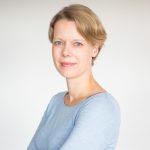 |
Marieke Hendriksen(May 22 – July 3, 2018)Marieke Hendriksen is a historian of early modern art and science. She is interested in the intersections of the material cultures of art, chemistry, and medicine in the eighteenth century. Marieke is a postdoctoral researcher at the European Research Council’s Artechne Project, housed at Utrecht University in the Netherlands and co-Principal Investigator of the Art DATIS Project. During her stay at the Center for Science and Society, she will collaborate with the Making & Knowing Project, while undertaking archival research at the New York Academy of Medicine for her new book, Making Anatomy Between Art and Science: Anatomical Modeling Techniques, 1700-1850. |
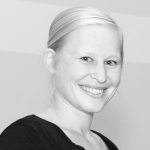 |
Tina Asmussen(April 1 – June 15, 2018)Tina Asmussen is a historian of early modern science at the Swiss Federal Institute of Technology in Zurich (ETH Zürich). She is interested in mining, metal culture and material practices in sixteenth- and seventeenth century. During her stay at the Center for Science and Society, she will collaborate with the Making and Knowing Project, while conducting research for her second book, Subterranean Economies – A Material History of Mining and Metalworking in Early Modern Europe, 1470–1650. |
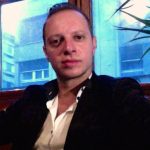 |
Federico Lauria(December 1, 2017 – December 1, 2018)Federico Lauria is a philosopher of emotion. He obtained his Ph.D. at the Swiss Center for Affective Sciences of the University of Geneva. His main research interests are desire, self-deception, musical emotions, death, and epistemic emotions. His work is at the intersection of the philosophy of mind, ethics, and aesthetics. His perspective is inherently interdisciplinary and aims at establishing a dialogue between philosophy and neuroscience. During his stay at the Center, he will investigate how people experience music as a metaphor for emotions and values, explaining why music is central to emotion regulation. He will revisit philosophical puzzles with the help of findings in the neuroscience of music. |
 |
Xinguo (Casa) Wang(November 1, 2017 – July 1, 2018)Xinguo (Casa) Wang is an independent researcher and artist. His research interest is in the history of scientific illustration from the Italian Renaissance to the end of the nineteenth century. He is focusing on the essential elements – form and content – within these images, but he is also interested in the modes of action that they convey. His goal is to understand the interactions between humans and nature, in particular in the work of the human hand as displayed in craft processes. In 2015, he was selected as one of the best independent table tennis blade makers over the world. The ultimate aim of his research is to introduce the scientific tradition to the younger generation in today’s China by focusing on the study of material culture, especially as found in scientific illustrations. He will collaborate with the Making and Knowing Project during his stay at the Center. |
2016 – 2017 |
|
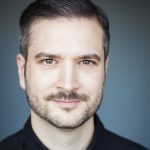 |
Fabian Kraemer(October 1, 2016 – September 30, 2017)Fabian Kraemer is a historian of science interested in the history of the sciences and the humanities from the Renaissance through the nineteenth century and currently on leave from his home university, Ludwig-Maximilians University of Munich. He has two main research interests: (1) the scholarly practices of reading and writing that were shared across the early modern Republic of Letters and their relation to “scientific” observation; (2) the pre-history of the two cultures (C.P. Snow) in the nineteenth century. During the tenure of his stay at the Center for Science and Society, he will be conducting research on how the sciences and the humanities grew apart at institutions of higher learning in the U.S. and Germany. |
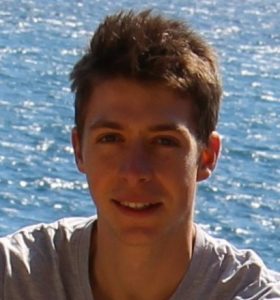 |
Ludovic Touzé Peiffer(April 12 – August 2, 2017)Ludovic Touzé Peiffer is a graduate student in Theoretical Physics at the Ecole Polytechnique (Palaiseau) and a philosophy student in Université Paris 10. He is interested in history and philosophy of physics and his research focuses on the Heisenberg’s inequalities and the questions they raise in the philosophy of sciences. At the Center for Science, he is currently involved with the Making and Knowing Project. |
 |
Xiaomeng Liu(January 7 – June 6, 2017)Xiaomeng Liu is a Ph.D. student in history at the University of Hong Kong. His research focuses on the transformation of pharmaceutical technology in late imperial and modern China. Xiaomeng’s project tries to understand how a traditional craft of drug making was transformed by the involvement of modern machines, and how the process changed the manufacturing, marketing and consuming of what we called today the “Chinese drugs”. During his visit to the Center for Science and Society, he is participating in the Making & Knowing Project. |
 |
Sahar Sadjadi(August 1, 2016 – January 31, 2017)Sahar Sadjadi is an anthropologist, physician, and Assistant Professor of Sexuality, Women’s, and Gender studies at Amherst College. Her research focuses on the intersection of science and technology, gender and sexuality, and childhood studies. She is currently writing a book about the clinical and cultural practices that have emerged around gender nonconforming and transgender children in the United States. |
2015 – 2016 |
|
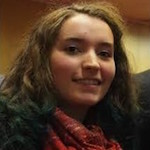 |
Margot Lyautey(April 18 – August 6, 2016)Margot Lyautey is a graduate student at the École Polytechnique (Palaiseau) and the École des Hautes en Sciences Sociales in Paris. Her research focuses on the French and German agricultural policies and practices during the Second World War. At the Center for Science and Society, she is currently involved with the Making & Knowing Project. She is also looking for former scientific devices used at Columbia University, the first step towards a History of Science Museum. |
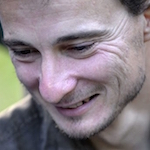 |
Christophe Bonneuil(February 25 – April 15, 2016)Christophe Bonneuil is a Senior Researcher in history of science, science studies and environmental history at the Centre Alexandre Koyré (Centre National de la Recherche Scientifique) and teaches at the École des Hautes Études en Sciences Sociales in Paris. His research explores the co-evolution of ways of knowing and ways of governing nature and the Earth. He has recently published a global environmental history of the Anthropocene, The Shock of the Anthropocene. The Earth, History and Us, (Verso, 2016; [2013 in french], with J-B. Fressoz) and edited The Anthropocene and the Global Environmental Crisis: Rethinking Modernity in a new Epoch (Routledge, 2015, with C. Hamilton and F. Gemenne). |
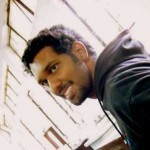 |
Philip Cherian(January 27 – August 15, 2016)Philip Cherian is a graduate student in Theoretical Physics at the École Polytechnique (Palaiseau) and the École Normale Superieure in Paris. He received his undergraduate degree in Physics from St. Stephen’s College, Delhi University in 2012 before being admitted to the prestigious Ingénieur Polytechnicien program at the École Polytechnique. Philip is interested in the history and philosophy of physics and is currently trying to locate and catalog scientific equipment from Columbia’s history which would aid in setting up a Museum of Science at Columbia. He is also involved with the Making & Knowing Project. |
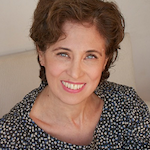 |
Irina Podgorny(October 24 – November 6, 2015)Irina Podgorny is a professor at the Archivo Histórico del Museo de La Plata at the Universidad Nacional de La Plata, Argentina. Originally trained as an archaeologist, she has taught as a visiting professor and held research fellowships at several prestigious institutions in Europe. She has published widely on the history of archaeology and paleontology in colonial and post-colonial Latin America. |
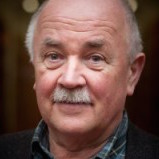 |
Ole Peter Grell(October 1 – December 31, 2015)Ole Peter Grell is Professor of Early Modern History at The Open University in the United Kingdom. He specializes in European social and cultural history in the sixteenth and seventeenth centuries, especially early modern European Calvinism, Anglo-Dutch relations, and the Reformation of northern Europe. Professor Grell received his Ph.D. from the European University Institute in Florence. While at Columbia, Professor Grell will continue his research and writing for a book entitled Understanding Nature. The World of Ole Worm (1588-1654): Physician, Natural Philosopher, Antiquarian, Collector, and Correspondent. |
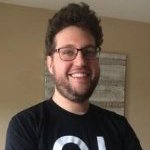 |
Alexander (Alex) Farrill(September 1 – August 31, 2016)Alex Farrill is an expert computer, information systems, and technology analyst and programmer who is working on innovative methods for developing digital tools and web interfaces. Alex is a Columbia graduate who double majored in Mathematics and American Studies. He will be collaborating with Professor David Rosner and Professor Merlin Chowkwanyun in The Center for the History and Ethics of Public Health to develop an academic database that will help organize and analyze millions of digitized historical documents on environmental health and industrial disease. |
2014 – 2015 |
|
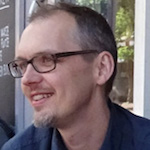 |
Geert J. SomsenGeert J. Somsen is Marie Curie fellow in the History Department for the academic years of 2014-15 and 2015-16, on leave from Maastricht University, the Netherlands. He specializes in the history of science in the twentieth century, especially in its international dimensions. At Columbia, he is working on the research project “Science and World Order”, which examines how notions of science have been used served as models for international cooperation, among others in the creation of institutions like UNESCO, the League of Nations and the International Court of Arbitration. |
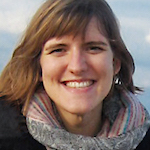 |
Elise Aurières(October 1 – December 31, 2014)Elise Aurières is a PhD student at the Philosophy Department of the University Paris 1 Panthéon-Sorbonne (supervisors: Bernadette Bensaude-Vincent and Dominique Pestre). She has a Master’s degree from the Philosophy Department of Paris 1 University, from History of Science Center of EHESS and from the Philosophy and Sociology Department of Paris 4 University. She is a laureate of the Alliance Doctoral Mobility Grant and subsequently began the third year of her PhD by a research period at the Columbia’s Department of History invited by Pamela Smith (Oct-Dec 2014). Her research focuses on the role played by Alexandre Koyré in the institutionalization of the history of science in the United States. The goal is to understand how Koyré renewed the intellectual landscape that he discovered in the US in the early 1940s, and how a number of American historians and philosophers integrated his ideas in their efforts to professionalize the history of science in the United States. |
